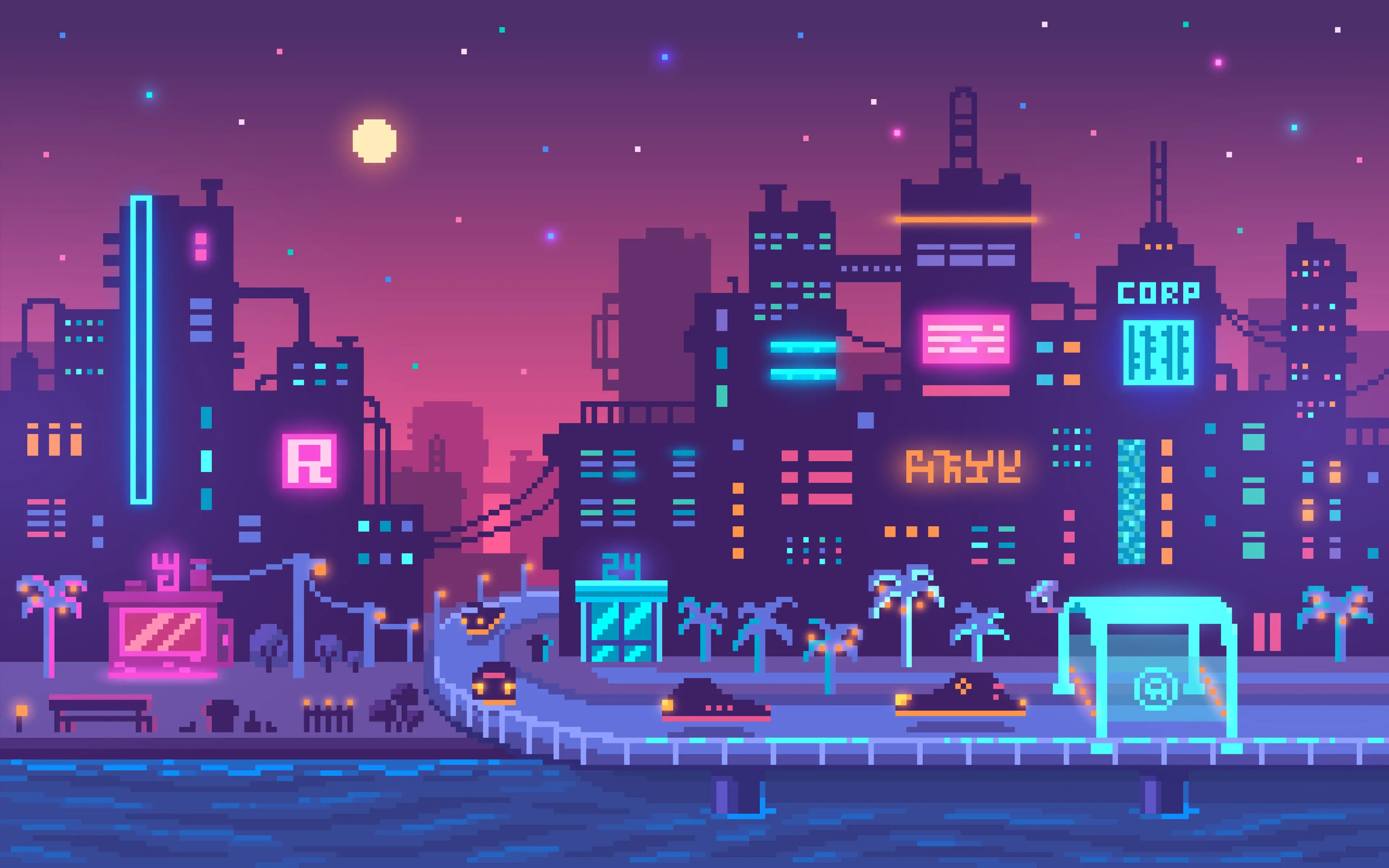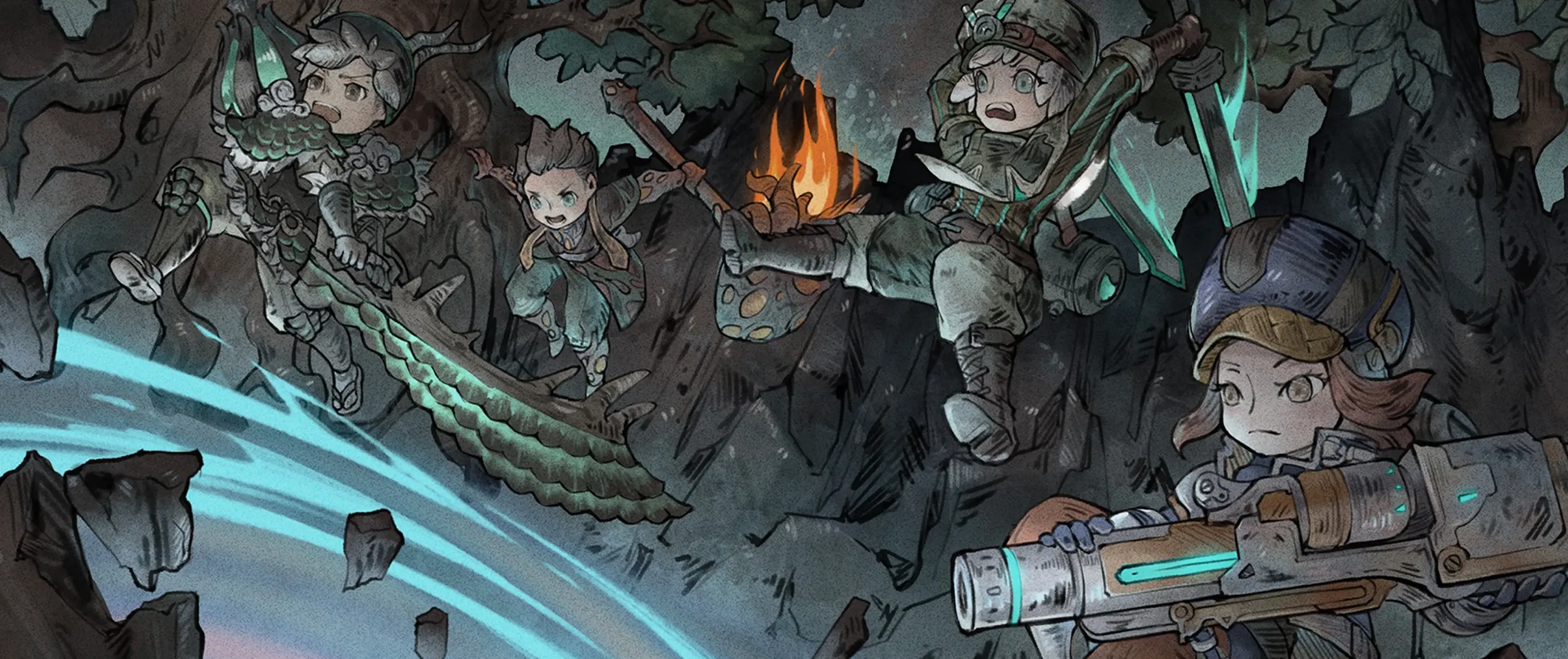If you're an indie video game developer, marketing your game for the first time is a daunting task. You might be asking yourself: "How do I get influencers to play my game? How do I get reviews and press coverage? What should I post on social media?" These are all important questions that we'll address in this article. We'll cover how to create assets, what kind of message to use when speaking to players and why consistency is so key. Let's jump right in!
1. Understand your own game.
It's fundamental to your indie game marketing that you understand your own game and who you should be your perfect targeting audience. Your message will vary depending on the audience, so it’s important to know what kind of player would enjoy your game before building a campaign around them. People play video games for many reasons; some like fast-paced action while others prefer puzzles or strategy gameplay. Some want an immersive story experience with compelling characters, and still others might just want something entertaining they can pick up when they have time. Knowing which type of gamer is most likely to enjoy your game title will help in crafting a more personalised marketing plan based on their interests (and tastes).
2. Craft your core message.
Once you know your game you can start to craft the right messaging that will explain your game quickly and simply. You need to be clear about what your game is and why it might appeal to players. Your messaging should answer questions like "Is this game for me?" or "Is this more of a competitive, cooperative, or single-player experience?" Don't fall into the trap of thinking your game is for everyone, that is a quick route to failure.
3. Find your audience.
Knowing who to target is an important part of your game marketing process, so putting time into finding out more about potential audiences will pay off in the long run. Steam reported that 14,532 were released on their platform last year alone, over 2,000 more than in 2023, and with the video game market ever growing it is becoming more and more crucial that you know who your target audience is.
You should:
- Find out what types of games they like (and which ones they don't).
- Figure out where their preferences come from and why those are appealing for them.
- Consider how different demographics might have varying tastes when it comes to video games and try not to make assumptions that could lead you down a wrong path later on in the game development process.
- Understand your key competitors and what messaging they use.
Knowing this information can help create messaging that's specifically targeted at people with certain interests or backgrounds, making it easier for players to share their enthusiasm for your game with others as well! Create messages that appeal to different audiences who share common interests with those of your players. For example, if you're marketing an RPG for PC gamers, then targeting other RPG aficionados is going to provide greater ROI than advertising towards people who enjoy strategy games (or any other type) but not RPGs specifically because those types of players will rarely click on links related to their least liked genre.

4. Create a Plan.
After crafting the right messages for your target audience, consider how best to reach them in order to build an effective indie video game marketing campaign that reaches across different mediums. You need to be using every available channel to reach your players as they all have different strengths and weaknesses as well as costs. This doesn't have to be a grand marketing plan with spreadsheets and huge brand documents, rather, just a general outline of how you want to spend your marketing time and budget based on your target audience.
5. Create killer assets.
Have you ever bought a game that had terrible copy and bad screenshots? It's hard to feel confident about a game if all the promotional materials make it look like an amateur project. Even something as small as a spelling mistake can turn people off and send them looking for another game that looks better or more professional, so take your indie game marketing efforts seriously from the start! You need to build press kits and assets that both tell the story of the game and why people should play it.
6. Build on your strengths and know your weaknesses.
What marketing areas are you and your team good at, social, community management, creative design? The answer to this question will dictate the kind of marketing you do. For example, if someone in your team is really good at making videos then it makes more sense to focus on building a YouTube channel that features game trailers and other promotional materials with compelling call-to-actions for viewers. Are you a part time Twitch streamer? Then create regular updates via this channel. Maybe you have experience with Discord or other platforms to communicate with your community? Then it makes sense for you to focus on building a presence there. You might be great at live events, so this becomes another opportunity for marketing. You also have to acknowledge when you don't know what you are doing and either take the time to train up or look for outside help.

7. A Growing Market
It is also important to connect and create relationships with influencers who love video games. These people have large networks of followers on social media outlets like Twitter, Facebook, YouTube, Twitch, or Instagram that you can reach when they share your game news and updates. More people are engaging with gaming influencer content than ever, with Twitch reporting that an average of 2.7million people are watching twitch streams at any one time so far in 2021, the highest this number has ever been. Influencer connections are one way to get press coverage for a low cost as well as the opportunity for cross promotion if their audience lines up with yours. Getting reviews from influencers or press also requires creativity as it's a numbers game.
You can't just send out an email to every website or journalist on the planet and expect them all to respond with favourable coverage, so instead of sending one message that could be ignored by everyone who isn't interested in playing your game - which would result in no reviews at all since they didn't open it, you should set up campaigns for each individual site with compelling reasons why YOU are worth writing about AND include assets like screenshots, trailers and press kits tailored specifically to their audience - this will increase your chances of getting coverage from those sites exponentially! It is crucial for indie developers to get reviews of their games before launch day in order to generate interest and excitement among potential players.
8. Build Your Social
It is impossible to connect with players in the modern day without some sort of social media presence. If you're marketing your game on a budget, then the best social media channels to focus on are Facebook and Twitter as well as having your own Discord community. Make sure you're using the correct hashtags when publishing content about your game on social media so people can find it more easily! Studying what kind of marketing other games in similar genres have done is helpful for getting an idea of what works for audiences like yours and then adapting those ideas to fit your own game's needs.
Post regularly with engaging content, respond in person to comments and questions from fans and be ready to have conversations one-on-one if someone reaches out via DM or e-mail. You can also reach out directly by mentioning them @username within the post or tagging them in an image - whichever seems more appropriate. It is also important to spend time on your company website. As per Limelight’s 2019 market research study, 53.9% of gamers said that they would not visit a gaming website that had suffered a hack or security breach, displaying how important it is to put time into making your website as user-friendly and secure as possible.
9. Spend what you can afford on paid media.
Spending money on ads can be scary, but it's worth the investment to be able to reach a wider audience on social media sites like Facebook and Twitter or for mobile Google and Apple Search Ads, where people are actively looking for content. If you have a small budget, it can be tempting to do just the bare minimum. However, following this advice may well end up hurting your game's potential by limiting its impact and reach through ads or paid promotions—especially if they are too limited in scope. Run paid media campaigns to target your specific player niche with ads that will be relevant to them.
Facebook and Google are the most common platforms with which game developers run campaigns on, but you can also use Reddit, Twitter Ads or other social media networks if those fit your audience profile better. You'll have an easier time attracting players who fit your niche on the right platforms and with the right messaging - so put some money into getting people's attention when it matters most. Make sure you're targeting the right demographic. Try to create at least a few different views of your game before deciding on how it should look in marketing materials - people might prefer one screenshot over another or like that your trailer has commentary while others find it distracting. You should also track how well these marketing efforts are doing by checking out analytics reports from each platform
10. Be authentic.
The big thing that's changing in the world of marketing is authenticity. People want to see what real people are saying about games before they buy them, not just reviews from journalists or professional critics. This has led players towards communities like Twitch where streamers can speak directly to their audience while playing video games live for hours at a time! Be sure to have an active presence there if it fits with your message because this new way of engaging with customers will only continue growing more popular over time. Make sure that you have an account set up on Discord as well, this is now seen as essential for most developers even increasingly within mobile developers.
11. Be consistent.
One thing independent developers can do is be consistent in messaging across all marketing channels so players know what to expect from them moving forward. This consistency will build trust over time which pays off down the line by creating communities who love playing your games. It's easy to be consistent when you have a solid game plan in place from day one. Producing high-quality content regularly for your players and engaging authentically is the foundation of any indie game marketing plan.
Final thoughts.
As a small indie game developer you have to get creative and also try to learn things outside your comfort zone. You have to be willing to take risks and look for new opportunities. Look at the big marketing picture while you're putting in all the hard work of game development but know when you need help too.



